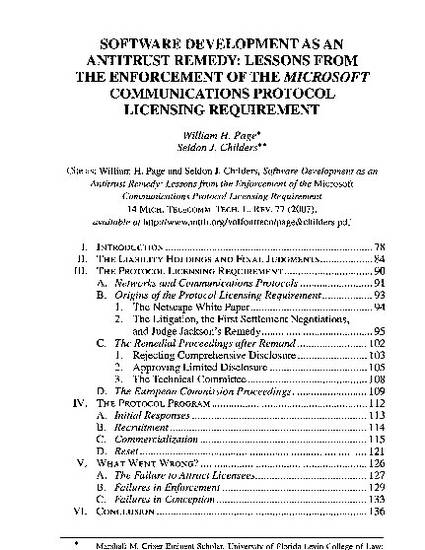
An important provision in each of the final judgments in the government's Microsoft antitrust case requires Microsoft to "make available" to software developers the communications protocols that Windows client operating systems use to interoperate "natively" (that is, without adding software) with Microsoft server operating systems in corporate networks or over the Internet. The short-term goal of the provision is to allow developers, as licensees of the protocols, to write applications for non-Microsoft server operating systems that interoperate with Windows client computers in the same ways that applications written for Microsoft's server operating systems interoperate with Windows clients. The long-term goal is to preserve, in the network context, the platform threat to the Windows monopoly that was the focus of the government's theory of monopolization. The platform threat was the possibility that "middleware," like Netscape's browser or Sun's Java technologies, might evolve into a platform for other applications and thus erode the "applications barrier to entry" that protects Windows. This was the threat that the courts held Microsoft illegally thwarted by its contracts and product design. The protocol licensing provision rests on the assumption that middleware running on servers might also pose a platform threat to the Windows monopoly of client operating systems. District Judge Kollar-Kotelly, in entering the final judgments, singled out this provision as the key to assuring that the other provisions do not become irrelevant as more applications move to servers in local networks or the Internet. The provision has, however, proven to be by far the most difficult to implement. We argue in this Article that the provision has not accomplished its purpose and that courts and policymakers can draw some hard lessons from the experience.
